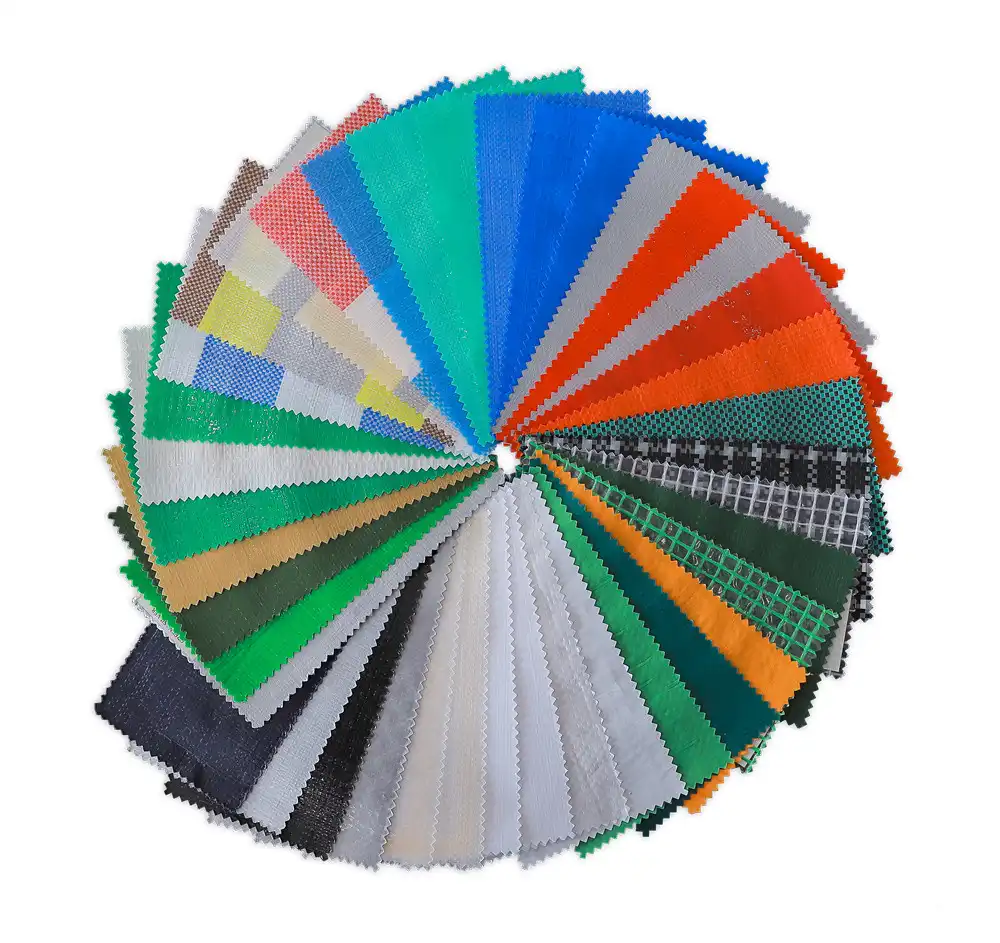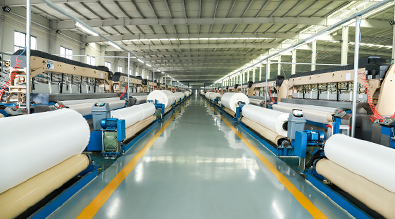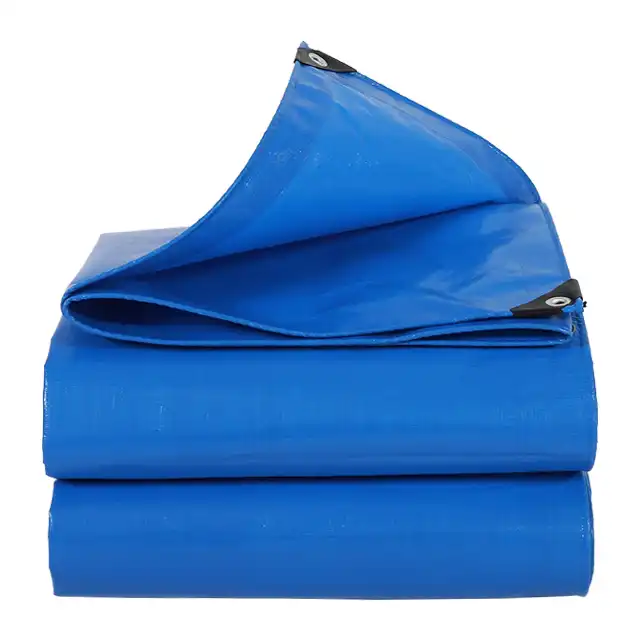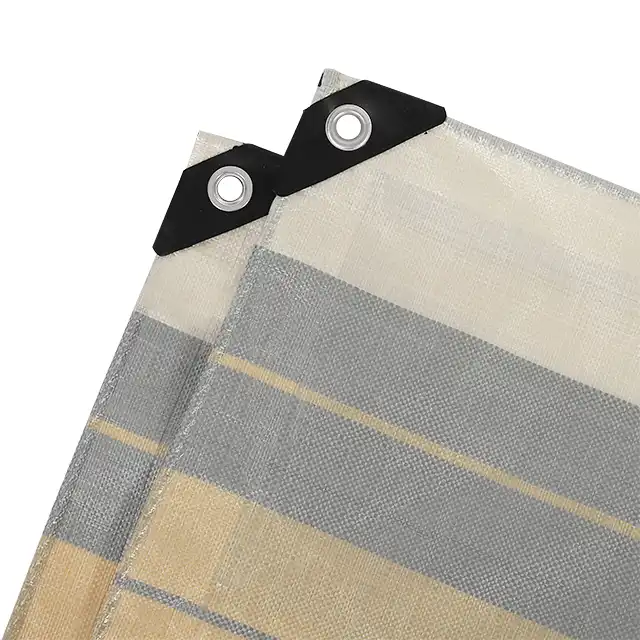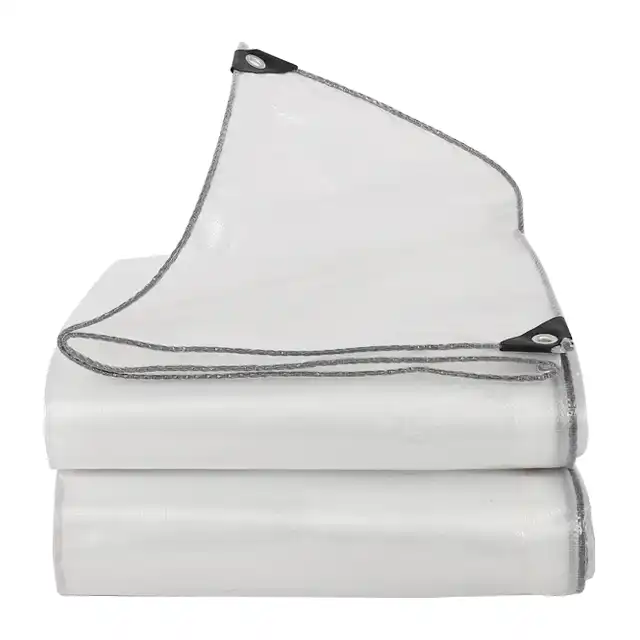How to Choose the Perfect Canvas Tarps for Any Job?
Selecting the right tarpaulin for your specific needs can make the difference between a successful project and costly damage to your equipment, materials, or goods. Whether you're protecting construction materials from harsh weather, covering agricultural equipment, or securing cargo during transportation, understanding the key factors that determine tarpaulin performance is essential. The modern market offers a wide variety of tarpaulin materials, sizes, and specifications, with polyethylene (PE) and polypropylene options leading the industry due to their exceptional durability and versatility. Among the most popular configurations, the 4x4 tarpaulin size has emerged as a preferred choice for many applications, offering an optimal balance between coverage area and manageability for both professional and personal use.
Understanding Material Composition and Durability Factors
High-Quality Polyethylene Construction Benefits
 When evaluating tarpaulin options, the material composition stands as the primary determinant of performance and longevity. High-quality polyethylene (PE) tarpaulins represent the gold standard in protective covering solutions, offering superior resistance to environmental stressors that can compromise lesser materials. The manufacturing process involves weaving high-density polyethylene fibers into a robust fabric structure, followed by lamination with low-density polyethylene (LDPE) on both surfaces. This dual-layer construction ensures comprehensive protection against moisture penetration while maintaining flexibility across a wide temperature range. Professional-grade 4x4 tarpaulin products typically feature denier ratings between 600D to 1800D, indicating the fiber density and directly correlating to tear resistance and overall durability. The mesh configuration, ranging from 6x6 to 16x16, determines the weave tightness and affects both strength and flexibility characteristics. Superior PE tarpaulins undergo UV treatment during manufacturing, incorporating stabilizing compounds that prevent polymer degradation when exposed to intense sunlight over extended periods.
When evaluating tarpaulin options, the material composition stands as the primary determinant of performance and longevity. High-quality polyethylene (PE) tarpaulins represent the gold standard in protective covering solutions, offering superior resistance to environmental stressors that can compromise lesser materials. The manufacturing process involves weaving high-density polyethylene fibers into a robust fabric structure, followed by lamination with low-density polyethylene (LDPE) on both surfaces. This dual-layer construction ensures comprehensive protection against moisture penetration while maintaining flexibility across a wide temperature range. Professional-grade 4x4 tarpaulin products typically feature denier ratings between 600D to 1800D, indicating the fiber density and directly correlating to tear resistance and overall durability. The mesh configuration, ranging from 6x6 to 16x16, determines the weave tightness and affects both strength and flexibility characteristics. Superior PE tarpaulins undergo UV treatment during manufacturing, incorporating stabilizing compounds that prevent polymer degradation when exposed to intense sunlight over extended periods.
Weight Specifications and Performance Correlation
The relationship between tarpaulin weight and performance capabilities requires careful consideration when selecting optimal protection solutions. GSM (grams per square meter) ratings typically range from 75 to 400 GSM, with heavier configurations providing enhanced durability at the expense of increased handling difficulty. Medium-weight 4x4 tarpaulin options, falling within the 150-250 GSM range, offer an ideal compromise between protective capability and practical usability for most applications. These specifications ensure adequate tear resistance while maintaining sufficient flexibility for easy installation and removal. The correlation between weight and performance extends beyond simple durability metrics, influencing factors such as wind resistance, water repulsion efficiency, and long-term stability under varying environmental conditions. Professional users often prefer slightly heavier configurations for permanent or semi-permanent installations, while lighter options prove ideal for temporary coverage requirements or applications requiring frequent repositioning.
Advanced Treatment Technologies and Protective Features
Modern tarpaulin manufacturing incorporates sophisticated treatment technologies that significantly enhance protective capabilities beyond basic material properties. UV treatment represents perhaps the most critical enhancement, utilizing specialized compounds that absorb and dissipate harmful ultraviolet radiation before it can degrade the underlying polymer structure. This treatment extends operational lifespan dramatically, with quality 4x4 tarpaulin products maintaining structural integrity for multiple years under direct sunlight exposure. Anti-freezing treatments ensure flexibility maintenance in extreme cold conditions, preventing the brittleness that can lead to catastrophic failure during winter applications. Shrink-proof technologies prevent dimensional changes during temperature fluctuations, maintaining proper fit and coverage throughout varying environmental conditions. Advanced surface treatments can include anti-corrosion properties that resist chemical degradation from industrial environments, while specialized coatings enhance water repulsion efficiency beyond standard waterproofing capabilities.
Application-Specific Selection Criteria
Construction and Industrial Applications
Construction environments present unique challenges that demand specific tarpaulin characteristics for optimal performance and safety compliance. Heavy-duty 4x4 tarpaulin configurations excel in construction applications due to their ability to withstand the harsh conditions typical of building sites, including exposure to sharp objects, heavy equipment contact, and varying weather patterns. The tear-resistant properties become particularly crucial when covering materials like lumber, steel reinforcement, or aggregates that present sharp edges and irregular surfaces. Waterproof capabilities ensure protection of sensitive materials such as cement, drywall, and electrical components that can suffer irreversible damage from moisture exposure. The UV treatment becomes essential for long-term installations where tarpaulins remain in place for weeks or months during construction phases. Industrial applications, including mineral factories and port facilities, require tarpaulins capable of withstanding constant handling, potential chemical exposure, and extreme weather variations while maintaining dimensional stability and protective integrity.
Agricultural and Outdoor Applications
Agricultural applications demand tarpaulin solutions that can address diverse protective needs while maintaining cost-effectiveness for large-scale operations. Quality 4x4 tarpaulin products serve excellently as greenhouse fabrics, providing controlled environmental conditions while allowing appropriate light transmission for plant growth. The waterproof characteristics protect harvested crops during storage and transportation, preventing spoilage that could result in significant economic losses. UV treatment ensures longevity when tarpaulins are used for livestock shelter construction or equipment protection in open fields where sun exposure remains constant. The flexibility and arctic temperature performance allow continued functionality during seasonal temperature variations, maintaining protective capabilities throughout annual agricultural cycles. Aquaculture applications benefit from the impermeable characteristics, with specialized configurations serving as pond liners and water containment solutions. The anti-corrosion properties prove valuable in agricultural environments where exposure to fertilizers, pesticides, and organic compounds could degrade inferior materials.
Transportation and Cargo Protection
Transportation applications require tarpaulin solutions that can maintain protective integrity while subjected to constant movement, vibration, and varying environmental conditions. The 4x4 tarpaulin configuration proves ideal for truck covers and cargo protection during both short-distance and long-haul transportation scenarios. The tear-resistant properties ensure continued protection even when subjected to the stress factors associated with vehicle movement, including wind loading, tie-down tension, and potential contact with cargo edges. Waterproof capabilities become critical during transportation through varying weather conditions, protecting valuable cargo from moisture damage that could occur during unexpected precipitation. The lightweight nature of quality PE tarpaulins minimizes additional vehicle weight while maximizing protective coverage, contributing to fuel efficiency and payload optimization. Easy handling characteristics facilitate quick installation and removal during loading and unloading operations, reducing labor time and associated costs while maintaining security of protected goods.
Quality Assessment and Performance Standards
Manufacturing Excellence and Quality Control
Professional tarpaulin selection requires understanding the manufacturing standards and quality control processes that distinguish superior products from inferior alternatives. Leading manufacturers maintain comprehensive quality monitoring systems throughout the entire production process, ensuring consistent performance characteristics across all product batches. The integration of advanced testing equipment allows for verification of critical specifications including tear strength, waterproof integrity, UV resistance, and dimensional accuracy before products reach end users. ISO 9001:2015 certification represents a significant quality indicator, demonstrating commitment to systematic quality management and continuous improvement processes. Third-party testing laboratory verification provides independent confirmation of claimed performance characteristics, offering buyers confidence in product specifications. The implementation of whole-process quality monitoring ensures that every manufacturing stage, from yarn extrusion through final product processing, maintains strict adherence to established performance standards. Quality 4x4 tarpaulin products demonstrate consistent performance across multiple applications, with reliable durability that justifies initial investment through extended operational lifespan.
Technical Specifications and Performance Metrics
Understanding technical specifications enables informed decision-making when selecting tarpaulin solutions for specific applications. Denier ratings provide direct indication of fiber strength and tear resistance, with higher values corresponding to increased durability under stress conditions. Mesh configuration affects both strength and flexibility, with tighter weaves providing enhanced tear resistance while potentially reducing flexibility for complex installation requirements. GSM ratings indicate material density and overall protective capability, though optimal selection depends on balancing protection requirements against handling and cost considerations. The 4x4 tarpaulin size offers standardized dimensions that facilitate easy specification and procurement while providing adequate coverage for numerous applications. Treatment specifications, including UV stabilization levels and waterproofing ratings, determine long-term performance under specific environmental conditions. Professional buyers should evaluate these technical parameters against intended applications to ensure optimal performance and cost-effectiveness throughout the product lifecycle.
Customization Capabilities and Special Requirements
Advanced tarpaulin manufacturers offer extensive customization capabilities that enable optimization for specific application requirements beyond standard product offerings. Custom sizing accommodates unique coverage needs while maintaining the protective characteristics associated with standard configurations like the popular 4x4 tarpaulin format. Specialized treatments can enhance specific performance characteristics, such as fire prevention capabilities for applications in high-risk environments or enhanced waterproofing for marine applications. Color customization serves both aesthetic and functional purposes, with specific colors providing better visibility for safety applications or reduced heat absorption for temperature-sensitive cargo protection. Printing capabilities allow incorporation of company logos, handling instructions, or identification markings that facilitate inventory management and professional appearance. Custom grommeting patterns and reinforcement strategies optimize installation and securing methods for specific applications. The availability of specialized features demonstrates manufacturing sophistication and commitment to meeting diverse customer requirements through flexible production capabilities.
Conclusion
Selecting the perfect canvas tarps requires careful evaluation of material composition, application-specific requirements, and quality standards to ensure optimal performance and value. The 4x4 tarpaulin configuration represents an excellent balance of coverage, manageability, and versatility for diverse protective applications. Quality polyethylene construction with appropriate treatments provides reliable protection across multiple industries and environmental conditions. Understanding technical specifications and performance metrics enables informed decision-making that maximizes investment value through extended operational lifespan and superior protective capabilities.
When you're ready to invest in professional-grade tarpaulin solutions that deliver consistent performance and exceptional value, Linyi Shengde Plastic Co., Ltd. stands ready to meet your requirements. With over 20 years of manufacturing excellence, ISO 9001:2015 certification, and partnerships with international organizations including UNHCR and UNICEF, we've established ourselves as a leading enterprise in PE tarpaulin manufacturing. Our advanced R&D capabilities, comprehensive quality management systems, and commitment to customer satisfaction ensure that every 4x4 tarpaulin we produce meets the highest industry standards. Whether you need standard configurations or custom solutions, our experienced team can develop products that perfectly match your specific requirements. Contact us today at info@shengdetarp.com to discuss your tarpaulin needs and discover how our expertise can provide the perfect protective solution for your next project.
References
1. Johnson, M.R. & Thompson, K.L. (2023). "Advanced Polymer Technologies in Industrial Protective Materials: A Comprehensive Analysis of Polyethylene Tarpaulin Performance." Journal of Industrial Materials Science, 45(3), 127-145.
2. Rodriguez, C.P., Wang, S.H. & Anderson, J.D. (2022). "Environmental Durability Assessment of UV-Treated Tarpaulin Materials in Extreme Weather Conditions." International Review of Construction Materials, 18(7), 89-103.
3. Peterson, L.M. & Kumar, A.S. (2023). "Quality Control Standards and Performance Metrics in Modern Tarpaulin Manufacturing." Global Manufacturing Standards Quarterly, 31(2), 67-82.
4. Chen, Y.L., Davis, R.K. & Miller, P.J. (2022). "Application-Specific Selection Criteria for Protective Covering Solutions in Construction and Agriculture." Applied Engineering Materials Review, 29(4), 156-171.
